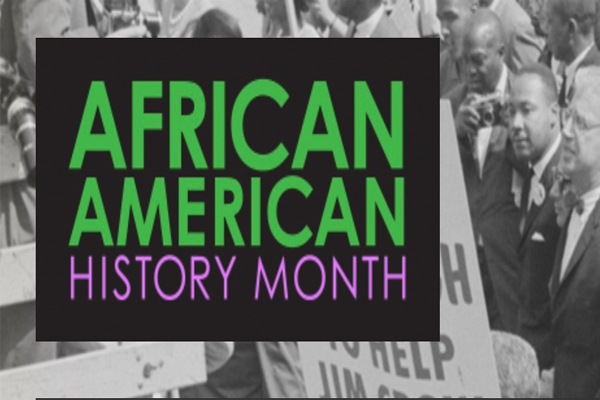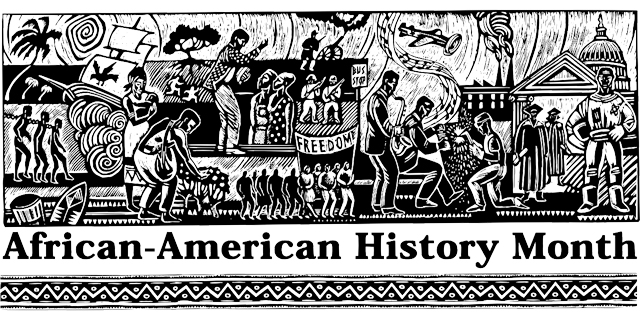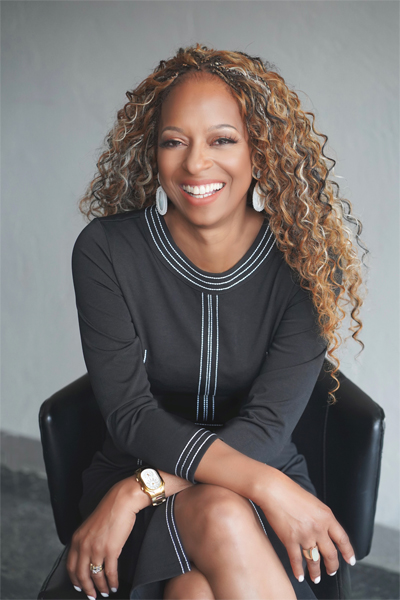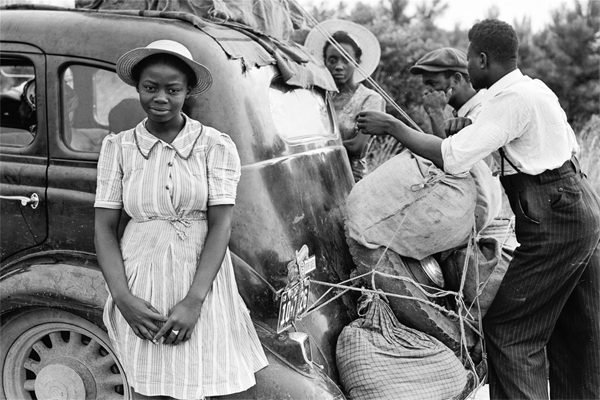In this week’s guest column dedicated to African American History Month, Michelle Wimes, Chief Diversity and Professional Development Officer at international law firm Ogletree Deakins, reflects on a commonly asked question: ‘Why does everything always have to be about race?‘ Wimes highlights the importance of celebrating the accomplishments of Black people both in and outside of the workplace. She also outlines the actions that need to be taken for more diverse representation, which will ‘one day eliminate the need for Black History Month, or any other special month dedicated to the accomplishments of the underrepresented‘.
It’s Black History Month. All month long, on my various social media feeds, I’ve been sharing the stories of little known Black heroes and sheroes as well as what I thought were inspiring facts and figures related to the accomplishments of Black people, both historical and current. Because I hail from Kansas City and our football team finally made it to the Super Bowl and won – after 50 years, I recently shared an article about a little known fact. For the first time in the NFL’s 100-year history, the mayors for the two teams playing in the Super Bowl (Mayor Quinton Lucas of Kansas City and Mayor London Breed of San Francisco) and the mayor of the host city (Mayor Oliver Gilbert of Miami Gardens) are Black.
In response to that post, one of my ‘friends’ on a social media site, a white male, questioned, “So…….please tell me why we need to boil everything down to race?” My polite response was that I would stop posting about race when there was parity in the numbers of Black mayors in our country. I queried whether he’d noted statistics from the article: “There are 19,429 municipal governments in the United States, and of the top 100 cities in the US – only 39 elected mayors are Black.”
He responded: “[W]ell, if we ‘need’ more black mayors… I say we need more highly qualified mayors regardless of race.” The commenter went on to opine that talking about race all the time “builds a chasm” and then quoted Morgan Freeman, “… folks need to pull themselves up by their bootstraps.” Another commenter, also a white male, queried, “What are their cities’ crime rates?” When I asked what their crime rates had to do with celebrating the historical nature of this feat, he was silent.

DIVISIVE TIMES
I received similarly disconcerting comments about my post on Patrick Mahomes, the KC Chief’s quarterback, who recently made history as the third Black quarterback to win the Super Bowl and the youngest to win the Super Bowl MVP honours. Folks were quick to question Mahomes’ race even though he has publicly identified as Black. I should have been shocked by these comments, but the truth is I wasn’t. We are living in very divisive times where race can hardly be discussed without vitriol and shaming. For me, these comments and others like them underscore exactly why Black History Month is necessary, and why we must celebrate the accomplishments of Black people both in and outside of the workplace, whether that workplace is a football field, a mayor’s office, a law firm, a hospital, or a manufacturing plant.
Neither talking about race nor celebrating the accomplishments of folks of a certain race widens a chasm. What widens the chasm is talking about race with disrespect, ignorance and an overall inattention to the history and context for how race has historically been used to divide, segregate, and treat as second class citizens a whole race of people. On the other hand, as my colleague, Kori Carew, Chief Inclusion and Diversity Officer for Seyfarth Shaw states, “Talking about race with courage, vulnerability, and with recognition of history, context and current events will lead to healing.”
I wholeheartedly agree, yet I also know that there can be no reconciliation without the truth. We must be willing to discuss our history, the good, the bad and the ugly. We must listen to the experiences of Black people and accept their truth as truth. We must not balk and resort to arguments about ‘qualifications’, ‘crime’ and ‘racial classifications’ when Black people seek to celebrate the accomplishments of their own.

DOUBLE STANDARDS
After all, as Kori so eloquently stated in her responsive comments to my social media post, “Unlike certain other groups, [Black] people lack many privileges and have survived in a system designed to keep them behind and yet still have contributed to this country’s greatness and success. Despite not having boots, Black people have thrived. Despite double standards, Black people have thrived. Despite racism and bigotry and bias, Black people have thrived.”
I recently saw the movie, ‘Just Mercy’ with my husband who happens to be a federal judge and my 16 year old lawyer-to-be daughter. The movie chronicles the early career of civil rights lawyer, Bryan A Stevenson, who after graduating from Harvard Law School, moved to Montgomery, Alabama to open The Equal Justice Initiative and represent indigent Black prisoners wrongfully convicted and placed on death row. Over the past 31 years of working at EJI, the statistics have borne out that for every nine people executed, one person on death row has been exonerated. Stevenson’s work with the EJI has resulted in reversals for more than 135 wrongfully condemned prisoners on death row.
Bryan went on to create an anti-lynching museum in Montgomery, the National Memorial for Peace and Justice, to honor the lives and legacies of more than 4,000 Blacks lynched in 12 southern states from 1877 to 1950, a devastating time in U.S. history. According to Bryan, this is the first such museum in our country solely designed to bear witness to the astounding atrocities of this era. Bryan argues that the history of slavery and lynching has influenced the high rate of death sentences in the south, where it has been disproportionately applied to people of colour.
So, my answer to the question, “Does everything always have to be about race?” is an emphatic YES, especially when the vestiges of slavery, lynching, segregation and mass incarceration still remain in our criminal justice system, our discriminatory real estate practices, the administration of our healthcare), the quality of education in our schools, and even in our sports and entertainment sectors.
The way to eliminate the need for a special month designed to celebrate the accomplishments of underrepresented peoples, like Black History Month, is for American history to be a more accurate reflection of the truth and our beloved American institutions to have diverse representation of the underrepresented at all levels.

MEANINGFUL ACTIONS
If we really and truly want Black History to be living history in our homes, communities, and workplaces, let us consider taking the following actions:
- Focus on systemic inequalities and what you can do to break those down in your environment. When we ask to see more Blacks and people of colour in representation, that request is not mutually exclusive to having the most highly qualified person hired. We all know that excellence comes in all colours, nationalities, religions and genders/gender identities. A system based in equity and fairness and focused on inclusive and true ‘qualifications’ will necessarily be diverse. At Ogletree, we have targeted coaching and mentoring programmes for our Black attorneys designed to reinforce both critical legal and professional skills (like business development) necessary to advance in the legal profession.
- Engage in courageous conversations. There is plenty of room for pushback, difficult conversations and even challenging the narratives of others. But do so in a respectful manner without being judgmental and dismissive. Come from a place of curiosity seeking to understand other’s points of view, experiences and backgrounds, rather than denigrating them and invalidating their experiences. Check out PWC US Chairman Tim Ryan’s, brainchild, the CEO Action for Diversity and Inclusion, to learn best practices on hosting courageous conversations in your workplaces.
- Give grace and truly listen. Try to give folks the benefit of the doubt, assuming good intentions while understanding that we are all a product of our own experiences and each have our own biases. Don’t listen just to respond. Practice deep listening and repeat what you heard to ensure you got it right.
- Don’t be a bystander. When you see something, say something. Choose to be and act like an ally, educating yourself about your own biases. Take one of Harvard’s implicit association tests and seek to understand the difficult dynamics of structural racism and racial injustice.
- Support and fund Black employee networks, affinity groups, and/or business resource groups, while providing them with critical opportunities for professional development and leadership. Ensure the group has an executive sponsor who is a senior leader within the company.
With these five steps in place only then will we begin to eliminate the need to talk about the devastating effects of race and institutional racism in our culture, or even have a need for a special month to recognise and celebrate Black folks’ contributions to American history.
AUTHOR BIOGRAPHY
Michelle Wimes currently serves as the Chief Diversity and Professional Development Officer for Ogletree Deakins, one of the largest labour and employment law firms in the US. She is an inclusion and talent management strategist, a writer and speaker, who combines her skills as a former lawyer and educator to advocate passionately for creating diverse and inclusive environments while equipping people and organisations with the tools they need to succeed. She has been working in the D&I field over 10 years and has been published in the ABA Journal, The Global Legal Post, Bloomberg Law, Thomson Reuters, and Multicultural and Savoy magazines. She received a B.A. in Spanish Language and Literature and Communications Studies from the University of Missouri-Kansas City and her law degree, with trial advocacy honours, from Tulane University.
GUEST SERIES DEDICATED TO BLACK HISTORY MONTH
In our first guest column, dedicated to African American History Month, AstraZeneca’s diversity champion Dawn E Christian outlined why she believes Black History Month is Everybody’s History Month. She also revealed how her grandfather, Dr Merl R Eppse, played an instrumental role in the creation of Black History Week in the US. Click here to read.







































